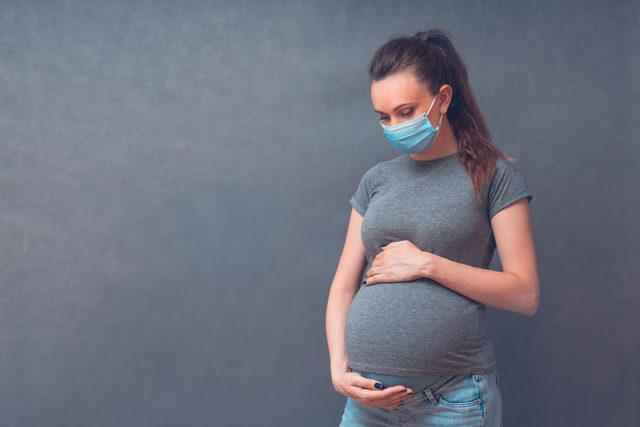Acıbadem Dr. Şinasi Can (Kadıköy) Hospital Gynecology and Obstetrics Specialist Dr. Süheyla Ayşe Mutlu said, “Also, it is very important to have all the recommended vaccinations during pregnancy and to consult a doctor in case of contact with an infected person or when an infection is suspected. Treatments are chosen with the baby’s health in mind. Therefore, one should not make the mistake of not using drugs or interrupting them for fear of ‘it will harm my baby’. Otherwise, serious problems such as premature birth may develop. If the treatment recommended by the doctor is not interrupted, the pregnancy process continues in a healthy way.
ATTENTION TO THESE PRECAUTIONS AGAINST INFECTIONS IN PREGNANCY!
Gynecology and Obstetrics Specialist Dr. Süheyla Ayşe Mutlu talked about common infections during pregnancy; She gave important suggestions and warnings.
URINARY TRACT INFECTION
Urinary tract infection ranks first among infections that develop during pregnancy. The reason for this is the slowdown in the excretory system with the pressure of the growing uterus and the inability to empty the bladder completely. Untreated urinary tract infection can lead to premature rupture of the membranes in the last stages of pregnancy and, as a result, to premature birth. Therefore, early treatment is of great importance. Dr. Süheyla Ayşe Mutlu stated that the most important symptom of urinary tract infection is burning during urination and said, “Although frequent urination is another symptom, it can also be seen due to decreased bladder capacity during pregnancy, so it does not make a diagnosis on its own. Apart from this, groin and flank pain may develop. Urinary tract infections can be treated with the use of antibiotics and drinking plenty of fluids makes the treatment easier.

HOW TO PROTECT?
Consume an average of 2.5 liters of water per day, depending on the season.
Do not hold your urine for long
Go to the toilet frequently and make sure the bladder is completely emptied.
Clean the genital area well after using the toilet.
Change your underwear every day, keep the genital area clean and dry
- Do not wear too tight clothes
UPPER RESPIRATORY TRACT INFECTIONS
In addition to the increase in the incidence of causative microorganisms in nature in autumn and winter, the incidence of colds and flu increases due to long stays in poorly ventilated closed places, cold air lowers body resistance, not paying attention to adequate and proper nutrition, and decrease in fluid consumption with the cooling of the air. . Dr. Süheyla Ayşe Mutlu pointed out that pregnancy alone does not pose a risk for catching an upper respiratory tract infection. says. Stating that upper respiratory tract infections usually do not require treatment, recovery is achieved with bed rest and plenty of fluid intake. Süheyla Ayşe Mutlu said, “Medications similar to saline can be used for nasal congestion. If necessary, paracetamol type drugs can be given as antipyretic. If cough and sputum are added to the table, a bacterial infection may be considered and antibiotic treatment may be required.

HOW TO PROTECT?
Do not be in closed environments for a long time, use a mask if necessary
Ventilate your environment frequently.
Wash your hands regularly for 20 seconds with soap and water
Avoid close contact with sick people
- Make sure you get your flu vaccine (after the first 3 months).
VAGINAL INFECTIONS
Vaginal infections are another group of infections most commonly encountered during pregnancy. Hormonal changes during pregnancy cause an increase in vaginal discharge. “If the light yellow or white discharge is odorless and does not cause itching or burning, it is physiological and does not cause a problem,” said Dr. Süheyla Ayşe Mutlu said, “Increased discharge accompanied by odor, itching and sensitivity should be examined and appropriate treatment should be planned according to the detected agent. Otherwise, it may lead to the threat of premature birth. The treatments of the most common Candida and Gardnerella vaginalis infections can be safely applied during pregnancy.

HOW TO PROTECT?
Use cotton underwear
Do not sit in a wet swimsuit
Pay attention to genital area cleaning
- Prefer genital area cleaners with appropriate pH as they can cause flora imbalance.
HPV (HUMAN PAPILLOMA VIRUS)
Another infection that has been encountered more frequently in recent years is genital warts caused by the Human Papilloma Virus. Dr. Süheyla Ayşe Mutlu pointed out that genital warts do not necessarily need to be treated if they are not very common and large, and said, “In case of need for treatment, acetic acid, cryotherapy or laser ablation methods can be applied. Since other treatment methods are performed under anesthesia, there is an unnecessary risk, so it is not preferred. It is very rare for the virus to be transmitted to the baby during birth. “Cesarean section delivery is preferred for expectant mothers who have warts in the vagina.”
HOW TO PROTECT?
TOxoplasma
Although it is rarer during pregnancy, another infection that threatens the health of the baby is toxoplasma. Toxoplasma gondi parasite is transmitted to humans by eating vegetables and fruits that come into contact with the soil contaminated by the feces of infected cats, and by eating the infected meat raw or undercooked. If the parasite reaches the fetus and infects, it can cause miscarriage and stillbirths. In addition, problems such as developmental problems, blindness, deafness and water collection in the brain may develop in the baby.
HOW TO PROTECT?
Do not consume raw meat or undercooked meat before and during pregnancy
Wash fruits and vegetables very well before eating them.
If you are dealing with soil, use gloves and clean your hands very well.
- There is no transmission from house cats who do not go out of the house and do not eat raw meat. However, use gloves when cleaning the sand or leave it to another family member.
